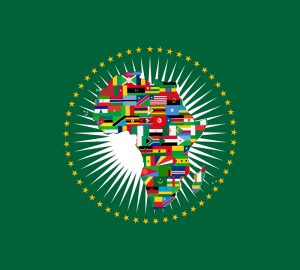Compte-rendu officiel des Concertations pour le Sommet des Nations Unies sur les systèmes alimentaires 2021
Type de Concertation
Coordonnateur
Langue de l'événement de Concertation
Date/heure
À:
Ville
Cible géographique
Format
Veuillez consulter les détails ci-dessous pour obtenir des renseignements sur l’inscription, s’ils sont disponibles, ou communiquer avec le coordonnateur si vous souhaitez y assister.
Animateur
Description
Background
The world is facing an unprecedented challenge of four intersecting pandemics – climate change, undernutrition, obesity, and COVID-19 with incalculable devastating consequences for human and the planetary health, if urgent and decisive action is not taken. Regarding COVID-19, A joint statement by the International Labor Organisation (ILO), the Food and Agriculture Organisation (FAO), the International Fund for Agricultural Development (IFAD) and the World Health Organisation (WHO) underscores its devastating impact on people’s livelihoods, their health and their food systems[1]. The cooccurrence of these four pandemics and their collective impact on the food system has laid bare its frailty, and hence a renewed urgency to improve the food system. Of these four pandemics, malnutrition is the longest raging, and Africa is particularly hard hit. Home to more than half of the world’s acutely food insecure people, and with the rate of increase of overweight and obesity and other diet-related non-communicable diseases (NCDs) alarmingly high, Africa has a unique challenge. To illustrate, between 1980 and 2015, adult overweight and obesity in Burkina Faso increased by 1400%, and by over 500% in Ghana, Togo, Ethiopia, and Benin. The existing evidence further indicates that eight of the 20 nations in the world with the fastest-rising rates of adult obesity are in Africa[2]. Low levels of overweight and obesity reported for countries like Ethiopia are misleading if the rates of increase are not also considered.
While the causes of the current malnutrition pandemic are complex, unhealthy diets remain one of the key contributors. In 2014, the FAO and the WHO and other United Nations (UN) agencies made it clear that the increased prevalence of malnutrition is the result of many factors including failing global food systems[3]. Additionally, increasing dependence on unhealthy diets is linked to food system failures to supply healthy and safe food options that are affordable, accessible, and feasible for all[4]. Participants of the FAO Future of Food Symposium in June 2019 agreed that “ending hunger and malnutrition will not be accomplished without transforming the global food system …”. Governments are often called upon to ensure that such transformations happen. The role of governments in protecting, promoting, and assuring the health of their citizenry (including freedom from malnutrition) is grounded, primarily, in national legislations, but also local policies, and international conventions. To be successful, however, governments require inputs – including data, evidence, nudging, and support from other actors. In response to this call for partnership and a collaboratively delivered response, the UN Secretary-General has called for a Food Systems Summit in September 2021. The Summit will articulate and adopt an actionable, integrated plan for food systems transformation.
To contribute to this Summit, the Measurement, Evaluation, Accountability and Leadership Support for NCDs prevention Project (MEALS4NCDs Project), the African Food Environment Research Network (FERN) and other African Regional Actors (including the African Population and Health Research Center, Réseau de Recherche sur les Politiques et les Systèmes Alimentaires en Afrique de l’Ouest”, African Nutrition Society, Federation of African Nutrition Societies, Coalition of Actors for Public Health Advocacy, International Food Policy Research Institute’s Research Program on Agriculture for Nutrition and Health, Rockefeller Foundation’s Food Systems Transformative Integrated Policy, Agriculture, Nutrition and Health Academy, the Chronic Diseases Initiative for Africa, and the African Union Development Agency (AUDA-NEPAD) are co-convening this Independent Food Systems Dialogue – virtually on May 26th 2021 (12:00 to 15.00 GMT).
The event will offer a platform for diverse food systems actors to exchange ideas, and reflect on the challenges and opportunities for transforming African food systems. Overall, the Dialogue will discuss long-term visions for a sustainable food system in Africa; it will also identify priorities for action within the next 10 years. Participants will deliberate on the role of MEALS in reimagining and re-designing the African food system. Reimagining Africa’s food system is re-imagining Africa’s food future, and ultimately, Africa’s future. Thus, these efforts will contribute to the Africa we want by 2030! 2063! & beyond.
DIALOGUE Details:
- Date|| Wednesday May 26th 2021 || Time|| 12:00 – 15.00GMT
- Location|| Regional, Online
- Category|| UN FSS Dialogue (Independent)
- Conveners/Partners ||The MEALS4NCDs/FERN, APHRC, REPSAO, ANS, FANUS, CAPHA, A4NH/IFPRI|| Rockefeller FS-TIP; ANH Academy, CDIA, DFC, AUDA-NEPAD
- Curators || Professor Anna Lartey, and Dr. Namukolo Covic
Questions to be discussed will include:
- What role should ||Measurements & Evaluation|| Advocacy & Accountability Science|| Leadership & Leadership Support|| play in our quest to transform African Food Systems?
- What actions or critical changes do we want various food system actors (e.g. governments, private sectors, academia etc) to adopt in the next 10 years to transform food systems so that they deliver healthy, nutritious, and safe food for people within planetary boundaries?
Meeting Registration Link: To REGISTER please click here
You may also visit the Dialogue Page on the MEALS4NCDs Website – by clicking this
Citations
[1] Joint statement by ILO, FAO, IFAD and WHO on the impact of COVID-19 on people’s livelihoods, their health and our food systems 13 October 2020 https://www.who.int/news/item/13-10-2020-impact-of-covid-19-on-people’s-livelihoods-their-health-and-our-food-systems
[2]GBD Obesity Collaborators. Health effects of overweight and obesity in 195 countries over 25 years. New England Journal of Medicine 2017; 377(1): 13-27.
[3]FAO. ICN2 International Conference on Nutrition: better nutrition, better lives. 19–21 November 2014, Rome. Rome: Food and Agriculture Organization; 2014. http://www.fao.org/about/meetings/icn2/en/
[4]Freudenberg N: Lethal but legal: corporations, consumption, and protecting public health: Oxford University Press; 2014.
Remerciements


